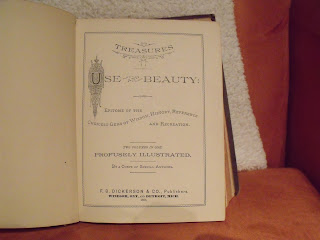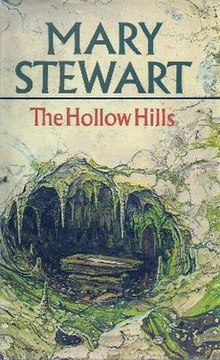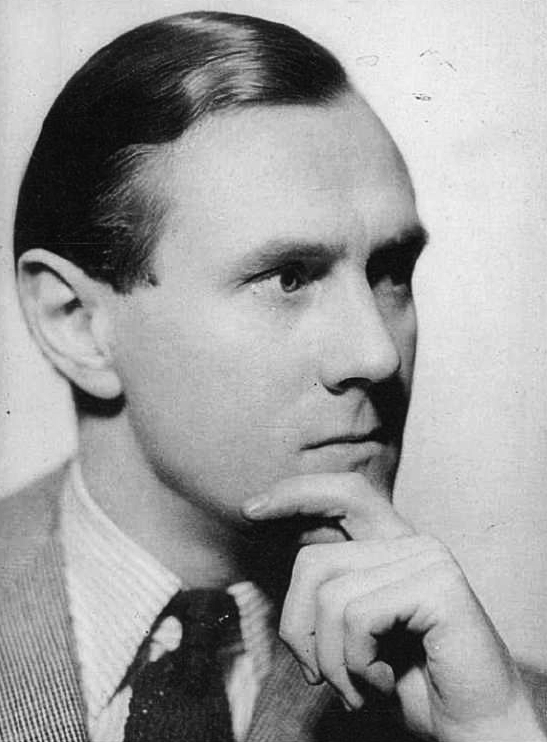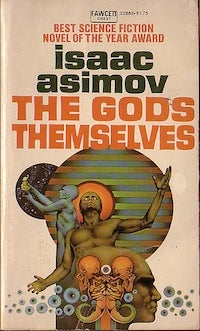 |
| Trust me, she is here. :0) |
Great Historical Events
Finishing off 1732 with my first excerpts.
"Birth of Washington.
Birth of Geo. Washington in Washington parish, Virginia.
Carolina divided into North and South Carolina.
First Masonic Grand Lodge in America.
1733. July 30. - First Grand Lodge of Freemasons on the American continent, constituted in New England, and called St. John's Grand Lodge, by Henry Price, a successful merchant of Boston, who received his appointment from Anthony, Lord Viscount Montague, Grand Master of England. Mr. Price is considered the father of Masonry in the United States.
Freemason's lodge held at Boston.
1740. First stove (a cast-iron fireplace) invented by Dr. Franklin upon which he refused to accept letters patent offered him by the Gov. of Pa., wishing to give the benefit of his discovery to the people.
1741. 'General Magazine and Historical Chronicle' published by Franklin.
July 18. - Vitus Bering, a celebrated Russian explorer, discovered Alaska."
It's getting very interesting, lots of people of whom I am more aware. It's neat putting them into a perspective of the times.
Business Laws Briefly Stated
"The maker of an accommodation bill or note is not bound to the person accommodated, but is bound to all other parties, the same as if there was a good consideration.
Checks or drafts should be presented for payment without unnecessary delay. (Ed. Note. I grew up spelling 'checks' as cheques. I've always found it very strange going into banks and seeing 'checks'. Ah well.)
Checks and drafts should be presented during business hours; but in this country it is not compulsory except in the case of banks. (Ed. Note. I'm not sure here if they mean Canada or the USA, as it's joint publication.)
If the drawee of a check or draft has changed his residence, the holder must use due and reasonable diligence to find him. Ed. Note. Back when this book was published, I wonder if they actually meant 'him' literally or if it was a generic comment?)
If one who holds a check as payee, or otherwise, transfers it to another, he has a right to insist that the check be presented on that day, or, at farthest, on the day following."
So are you using these factoids to ensure you are following proper business practices? ;0) I can't believe you'd just be ignoring them.
The Birth Day Thing - 10 November 1973
US Billboard #1 Single 10 November 1973
Keep On Truckin' Pt. 1 by Eddie Kendricks. Eddie Kendricks was an American singer / songwriter who lived from 1939 - 1992. He was one of the original founders of The Temptations. Keep On Truckin', Pt. 1 was his first solo #1 hit.
UK #1 Single 10 November 1973
Daydreamer by David Cassidy. I think David Cassidy was in The Partridge Family.. Honestly I can only really remember Shirley Jones and Susan Dey. Correct me if I'm wrong. (OK, just kidding). Cassidy was born in 1950 (Hah! he's 5 years older than I am). Besides his stint with The Partridge Family, a fun TV show as well, he has had an ongoing successful solo career. Daydreamer was his second UK #1. My wife will be happy to see this on my list.
New York Times Fiction Best Seller 10 November 1973
The Hollow Hills by Mary Stewart. The Hollow Hills is the 2nd novel of Mary Stewart's quintet of novels featuring the Arthurian legend.
Mary Stewart was a British novelist who lived from 1916 - 2014 and who had a successful career writing romantic suspense novels and children's novels and poetry besides her Arthurian stories.
Pulitzer Prize Winner, 1973
The Optimist's Daughter by Eudora Welty. The Optimist's Daughter is the story of Laurel, who travels to New Orleans to look after her ailing father.
Eudora Welty lived from 1909 - 2001 and wrote about the American South. She was awarded the Presidential Medal of Freedom amongst other awards. She was the first living author to have her works published by the Library of America.
Nobel Prize Laureate, 1973
Patrick White (Australia). Patrick White was an Australian writer who lived from 1912 - 1990. He was recognised as one of the most influential English speaking writers of the 20th Century. He published 12 novels, 3 short story collections and 8 plays. He was awarded his Nobel Prize 'for an epic and psychological narrative art which has introduced a new continent into literature.' I don't believe I've read any of his books, but I may check them out.
Hugo Award Winner, 1973
The Gods Themselves by Isaac Asimov. This book was originally published in 3 parts in Galaxy Magazine and Worlds of If. The story tells of interactions between Earth and an alien galaxy in a parallel universe.
I've read many of Asimov's works. I especially enjoyed the Foundation and Empire stories and the Robot novels. I've been trying to find his mystery series, the Black Widowers.
Edgar Award Winner, 1973
The Lingala Code by Warren Kiefer. This is an unfamiliar book and author for me. The story is set in Africa after the death of UN Secretary General, Dag Hammarskjold and involves intrigue with the UN, CIA and others. It does sound like an interesting story.
Kiefer was an American author who lived between 1929 and 1995. He was both an author and director.
Man Booker Prize Winner, 1973
The Siege of Krishnapur by J.G. Farrell. This book details the siege of the fictional Indian town of Krishnapur, during the Indian rebellion of 1857, from the perspective of British residents.
J.G. Farrell was a Liverpool - born writer. He lived from 1935 - 1979. He was especially known for a trilogy of novels, known as the Empire books, dealing with the consequences of British colonial rule.
So there you go. The missus and Fiona should be home shortly. Tomorrow or when I next get a chance, we move on to 1974.









No comments:
Post a Comment